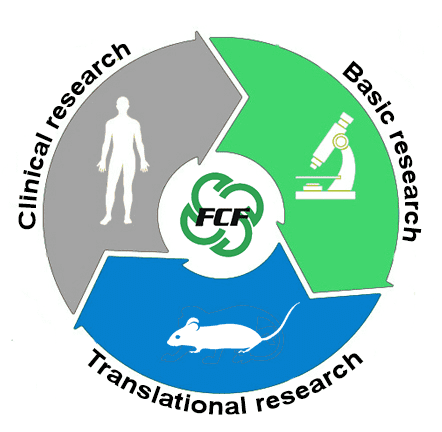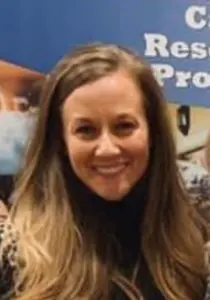Ensuring that all applications receive a thorough and fair review is a critical effort for all research grant providers. Both FCF and the U.S. Department of Defense (DOD) view community volunteers as important partners in their grant application review processes, since patients and caregivers can provide extremely valuable perspectives on the potential impacts of grant proposals. These programs provide interested community members the opportunity to work side-by-side with scientific experts on review panels that determine how research funds should be distributed.
Details of FCF’s and the DOD’s grant review programs are listed below.

As part of FCF’s commitment to deepen patient and caregiver involvement in our research process, FCF has launched its Community Reviewer Program. This new program brings together fibrolamellar community members with prominent scientists to evaluate the merit of research grant applications that have been submitted to the Foundation for funding.
Community reviewers can be either fibrolamellar patients or caregivers who have an interest in expanding their personal scientific knowledge about FLC and are willing to represent the views of the entire FLC community in the process. Specifically, the work entails reading research applications, providing brief written evaluations of each application and participating in funding decision meetings for the applications under review. The pilot implementation of this program launched in July 2022.
FCF’s grant review process includes the following steps:

- In each grant application cycle, FCF’s scientific team assembles the review panels for newly submitted grant requests. Each application for funding is typically read and scored by 5 reviewers – 3 scientific reviewers who are chosen for their expertise in the subject matter of the grant, plus two community reviewers.
- Each reviewer is required to sign FCF’s non-disclosure and conflict of interest policies, agreeing to not discuss or share any information about the grant applications and application discussions with anyone not involved in the review process.
- After receiving their assigned applications and detailed instructions on the process, the reviewers read the application materials in detail.
- Reviewers then provide written feedback on important components of the application, plus an overall assessment of the proposal. Community reviewers are asked to focus on assessing the objectives and potential impact of the proposed study but are welcome to comment on all aspects of the proposal.
- All assigned reviewers then attend decision meetings to share and discuss the panel members’ perspectives on the individual applications and create preliminary funding recommendations.
- The outcomes of those meetings are summarized, and recommended proposals are presented to FCF’s Board of Directors for final decisions.
If you would be interested in participating in a future cycle of the Community Reviewer Program, please contact us at info@fibrofoundation.org.
Thank you for considering this opportunity to accelerate fibrolamellar research!

Each year, the Department of Defense (DOD) searches for patients and caregivers to act as consumer grant reviewers for two of its large cancer research funding programs:
- The Peer Reviewed Cancer Research Program (PRCRP), and
- The Rare Cancers Research Program (RCRP).
Consumer reviewers for these programs work alongside prominent scientists to provide input on how the DOD’s research funds should be allocated. Consumer reviewers act as subject matter experts on their disease, bringing their lived experience and perspective to the review panel.
Program overview
Since 2009, the PRCRP has been charged by U.S. Congress to fund innovative cancer research to support service members, their families, and the American public. The RCRP, launched in 2020, is focused exclusively on the research of rare cancers impacting fewer than 6 of every 100,000 people in the United States. Together, the two programs offer significant sources of cancer research funding that could potentially benefit the fibrolamellar community. In 2022, the PRCP plans to grant $130 million to support research into cancers including liver, pediatric and adolescent and young adult cancers; the RCRP plans to allocate an additional $17.5 million into research of rare cancers, such as FLC.
Many members of the fibrolamellar community, including Jenny Carroll, Jennifer Strickland, Ben Saksa, Linda Spink and Kurt Losert, have served as consumer reviewers for these programs in prior years. The involvement of these consumer advocate’s effort has made a difference for our community. Fibrolamellar research proposals have received over $2 million in funding from these important DOD programs.
Program requirements and application timeline:
Consumer reviewers can be either patients or caregivers. If interested:
- Potential consumer reviewers submit a nomination form and personal statement in the spring (normally between April and June of each year)
- FCF would write a corresponding letter of nomination, and help submit the application for processing
- If a participant is accepted as a reviewer, the work to read and comment on submitted proposals generally begins in mid-fall. Selected individuals will receive training and support and, if eligible, will receive an honorarium for their participation.
- Reviewers then read the biomedical research applications and providing a brief written evaluation of the impact of each application. Each reviewer’s work will culminate in a 1-to-2-day virtual meeting.
Below is a brochure that provides additional background information on all the Congressionally Directed Medical Research Programs (CDMRP), outlines their grant review processes, and shares several consumer reviewers’ comments about their experiences.
Feel free to contact Lynn O’Malley at lomalley@fibrofoundation.org if you have any questions or are interested in applying for the next cycle.
